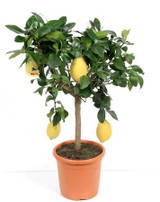Using natural fertilizer for houseplants is a great way to encourage growth and flower production. Steadily releasing nutrients into the soil, a natural fertilizer can be just as effective as a potentially harmful chemical product. Natural fertilizers are also eco-friendly, safe and easily available. In fact many of our natural fertilizer for houseplants suggestions are probably already in your home, waiting to be used.
Like knowing how often to water houseplants, correctly fertilizing your plants is vital if you want them to thrive. Indoor plants require regular fertilizing throughout the year to help them reach their full potential.
As well as benefiting your plants, many of the suggestions on our list also work to improve the quality of your soil over time. Finally, many of our natural fertilizer for houseplants suggestions are also suitable for plants growing in raised beds, borders and container gardens.

Plants are a great way to add color and interest to your home. Like container gardens they need regular watering and fertilizing in order to thrive.
- What is a Natural Fertilizer for Houseplants?
When we talk about natural fertilizers for houseplants we mean minimally processed materials. These are rich in natural, usually organic, nutrients. When added to the soil these materials slowly decompose as microorganisms break them down, converting them into a mineral form. This not only enriches the soil but once the material has been converted into a mineral form it can be harvested by plants, giving them a nutritional boost.
Naturally occurring fertilizers are commonly used in agriculture. Some of the most well known include limestone, alfalfa meal, kelp, worm castings, chicken or cow manure, compost and compost tea. While these are great for the garden or allotment, they are not often used indoors because of the aroma.
Certain naturally occuring fertilizers are sold or labeled as soil conditioners or amendments. These can be worked into the soil before planting, improving the soil. They are commonly used when planting up a container garden or raised bed.
Some commercially produced naturally sourced fertilizers can be more expensive than chemical options. Our list of natural fertilizers for houseplants are readily available and won’t break the bank.

A naturally occurring fertilizer allows you to enrich your soil and boost your plants without using potentially harmful chemicals.
The makeup of natural fertilizers can be complicated. For this reason, unlike chemical products, you won’t find N-P-K ratios attached to them. If your plants are in need of a certain nutrient here are some suggestions:
- Plants needing nitrogen should be given alfalfa meal or fish emulsion.
- Plants lacking in phosphorus benefit from applications of bone meal or rock phosphate.
- Plants requiring more potassium should be treated with either granite meal or kelp meal.
There are also a number of suitable natural fertilizers for houseplants. Many of these will already be in your home, while others are easy to obtain. Here are some of the best natural fertilizer for houseplants options.
EGGSHELLS
Eggshells are a great natural fertilizer for houseplants. They contain calcium, an essential plant micronutrient. Eggshells also help to lower the acidity level of the soil.

One of the best natural fertilizer for houseplants options, eggshells can be applied in a number of ways.
After cleaning the eggshells pulverize or crush them. They can then be mixed into the soil when you are potting up plants.
Alternatively you can add the crushed shells to a fertilizer tea. To do this crush the shells and stir them into a jug of boiling water. Allow the mixture to steep overnight before applying to your plants.
Finally egg shells can be added to a compost heap before being applied as a garden mulch.
BANANA PEELS
It is well known that bananas and banana peels contain a high level of potassium. However the peel also contains small amounts of magnesium, nitrogen and phosphorus. This combination means that banana peels are a great slow release natural fertilizer for houseplants.
To enrich your soil, simply lay strips of banana peel onto the soil. Alternatively you can incorporate the peels into your watering routine by pureeing them with water. This mixture can then be poured onto the soil.
You can also cut the peel into pieces and mix with the soil. A versatile product, banana peel can also be used to make your own plant feed.
COFFEE GROUNDS
Rich in nitrogen but low in phosphorus and potassium coffee grounds are a great way to improve your plants foliage. They are not so great for flower production.
Used coffee grounds, like many of our other natural fertilizer for houseplants suggestions, can be mixed with potting soil or run through a compost grinder and added to a compost heap. You can also make a liquid coffee based fertilizer by soaking the grounds in water for a week.
Coffee is an acidic substance so coffee grounds are best applied to acid loving plants such as roses, aloes and ferns.

Used coffee grounds have a number of uses. Acid loving plants in particular will benefit from an application of used grounds.
AQUARIUM WATER
Waste water from aquariums is rich in naturally occurring nutrients thanks to the fish waste and decomposing fish food present in the water.
When changing the water in the aquarium simply water your plants with the old water. This process imitates nature’s nitrogen cycle. In the wild, plants growing close to ponds or water sources benefit from the nitrogen waste that fish produce. This not only helps the plants to grow but also improves the water by filtering and cleaning it. Many growers aim to replicate this natural relationship with the aquaponics system.
GREEN TEA
Used green tea grounds and leaves are rich in tannic acid. This helps to lower the pH level of the soil. Rich in nutrients this natural fertilizer for houseplants suggestion ensures that your plants will become strong and healthy. Green tea is a great option for acid loving plants such as African violets and begonias.

Like coffee grounds, green tea leaves can also be used to enrich the soil around your houseplants.
To apply, brew the leaves twice and allow to cool. The liquid can then be poured onto the soil around your plants. Alternatively you can put the leaves and grounds through a compost grinder or add to a compost heap.
Another benefit of green tea is that it improves oxygenation in the soil. This helps root systems to thrive. You can find a great recipe to make green tea plant feed here.
EPSOM SALTS
A good quality epsom salt is rich in both magnesium and sulfate. Together these minerals are incredibly nourishing for plants. A regular dose of epsom salts can encourage plants to grow fuller and greener as well as prolonging their lifespan.
Water your plants once every two weeks during the growing seasons with a solution consisting of 1 tablespoon of Epsom salt dissolved into 1 gallon of water.
Alternatively you can mist the leaves of your plants with a mixture twice as concentrated.
You can also place a handful of Epsom salt granules into the soil when planting or repotting.
UNSALTED STARCH WATER
Starch water can encourage the release of nutrients. After cooking potatoes or pasta, don’t throw the water away. Instead let it cool and then use it to water your plants.
Don’t use salted starch water, this can lead to salt building up in the soil and potentially harming your plants.
CEREAL CRUMBS
Cereal crumbs gathering at the bottom of the bag or in your bowl can be annoying. However they are a great natural fertilizer for houseplants. The grains that cereal is made from are full of naturally occurring nutrients.
To make the most of your cereal crumbs, simply sprinkle them around your plant and cover with soil. Cereal crumbs can also be sprinkled over the lawn as a spring fertilizer.
CLUB SODA
A study by the University of Colorado found that the minerals present in sparkling water, or club soda, encourage plants to grow. This may be an expensive way of watering your houseplants. However it is a quick and effective method of restoring or improving poor soil. Sparkling water can also be used to get some stains out of furniture.

As well as hydrating plants sparkling water also provides a nutritional boost.
Our list of natural fertilizer for houseplants are all safe and gentle. Nothing on this list is overly concentrated and, if applied correctly, won’t damage delicate plants. In addition the majority of our suggestions are not only environmentally friendly and affordable but they will also help to improve the structure of your soil over time.
Despite being safe remember to apply any natural fertilizer for houseplants with some care. It is far easier to correct under feeding, or underwatering, than overfeeding. Remember, dry fertilizers take more time to break down and are applied far less frequently than liquid fertilizers.

Regularly feeding your plants will help them to thrive and flourish. These suggestions for natural fertilizers for houseplants allows you to care for your plants without using potentially harmful chemicals.
Fertilize your indoor plants only when they are actively growing, this is usually during the spring and summer months. Take the time to research your plant and its specific needs. This helps you to better care for it. For example, plants preferring darker positions require less frequent fertilization than those that thrive in bright positions.
Our natural fertilizer for houseplants suggestions are all easy to find and apply. Using one or a combination on your houseplants encourages strong, healthy growth and flowering.





